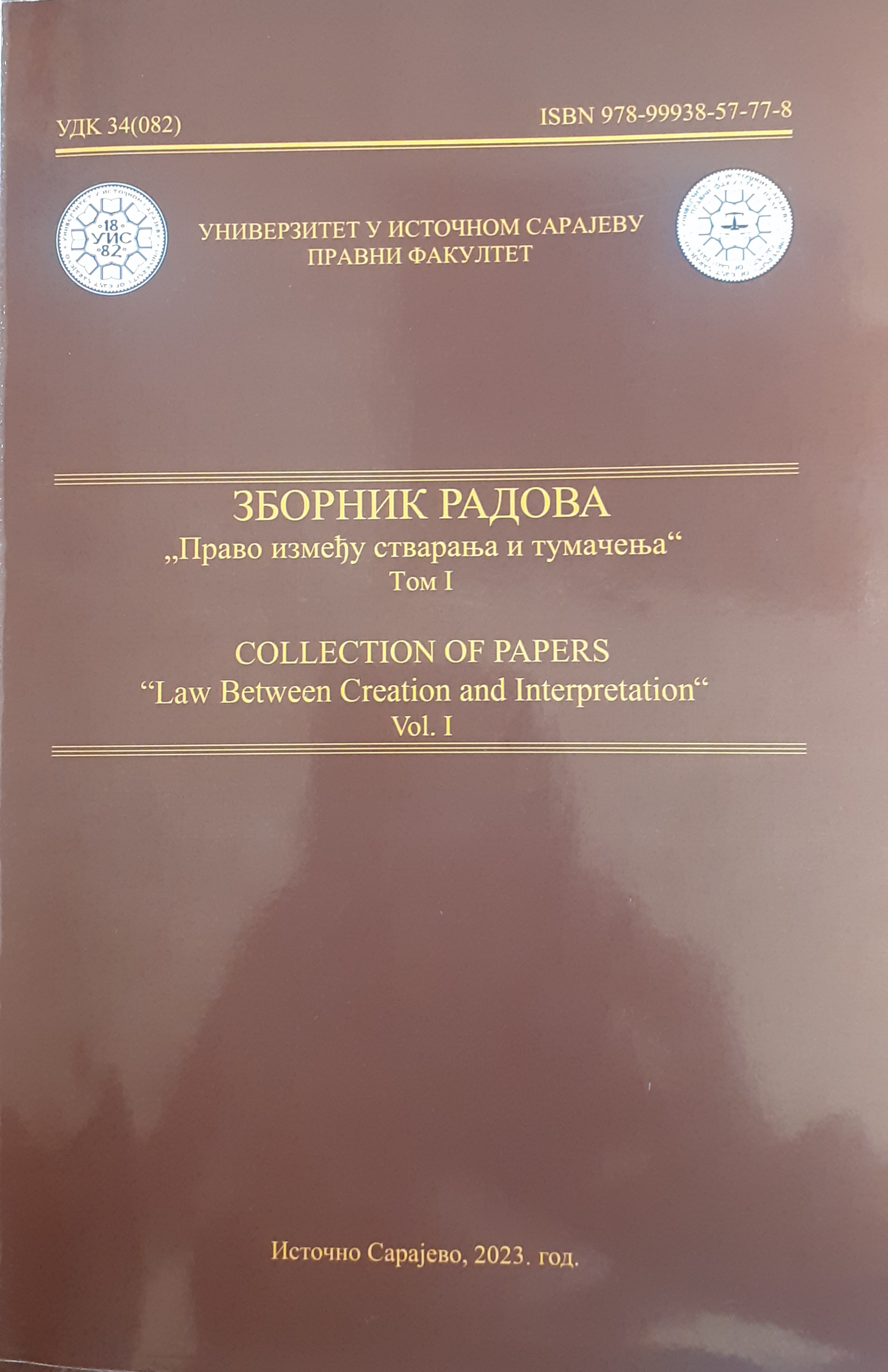Контроверзе стварања права актима Високог представника у Босни и Херцеговини
The Controversies of Law-Making by Means of the Acts of the High Representative in Bosnia and Herzegovina
Author(s): Milan Pilipović
Subject(s): Law, Constitution, Jurisprudence, Constitutional Law, Governance, Politics and law
Published by: Правни факултет Универзитета у Источном Сарајеву
Keywords: High Representative; Annex; The Constitution; Law; Law-making; Advice;
Summary/Abstract: The existence, the position and authority of the High Representative are governed by Annex X of the General Framework Agreement for Peace in Bosnia and Herzegovina, That Annex, among other things, determines that the High Representative is the ultimate authority for interpreting the Agreement on the Implementation of Civil Aspects of Peaceful Settlement. However, in practice, he acted as a lawmaker by introducing amendments to entity constitutions and laws at the B&H and entity level. The existence of the High Representative from a formal aspect is not questionable, However the author disputes his activity, which recently manifested in law-making, from the theoretical and constitutional aspects. Therefore, under the said Annex, the High Representative did not receive any legislative powers. He did, however, received a mandate to supervise the implementation of the peace settlement, maintain contacts with the contracting parties, coordinate the activities of civil organizations and agencies, advice and suggest certain solutions, and periodically report on the progress and implementation of the peace agreement. This Annex does not result in any ordering, dismissal or appointment of its people, let alone the passing of laws and other regulations in place of the legal and legitimate bodies of the two entities and the institutions of Bosnia and Herzegovina. The High Representative, when making his decisions, referred to Annex X, as well as to the provisions of the declarations of the Peace Implementation Council, which expanded his powers. The paper indicates that the establishment of the Council for the Implementation of Peace and its Board of Directors took place after the signing of the Dayton Peace Agreement, without any special legal basis and without the consent of the contracting parties who signed Annex X. The author advocates the thesis that Annex X, acts of the Peace Implementation Council, as well as other relevant acts related to the High Representative, do not contain a legal basis for him to issue normative acts, that is, to exercise the constitutional and legislative powers. The Bonn Declaration did not explicitly establish the authority of the High Representative to pass laws, i.e., to replace legislative bodies, but to pass "temporary measures" instead of the Presidency and the Council of Minsters. The controversial activity of the High Representative will shed some light on the role of the Constitutional Court of Bosnia and Herzegovina too. The Constitutional Court accepted the jurisdiction to examine the constitutionality of the act adopted by the High Representative, deciding not to enter into the assessment of the High Representative's powers. The Court decided that it is not competent to evaluate the powers of the High Representative to enact laws because it is an institution of international character. At the same time, the Court assesses that the institution of the High Representative has replaced the domestic institutions, i.e., that he acted as an institution of Bosnia and Herzegovina, that the law passed by the High Representative must be deemed the law of Bosnia and Herzegovina and, the Court decided that the law passed by the High Representative was in accordance with the Constitution of Bosnia and Herzegovina. Instead of being the guardian of the Constitution and constitutionality in Bosnia and Herzegovina, the Constitutional Court of Bosnia and Herzegovina, with its decisions and positions, contributed to the High Representative becoming a special institution in Bosnia and Herzegovina, which, by creating law, changes the constitutional and legal order of Bosnia and Herzegovina and its entities. Making law should not be a unilateral authoritarian declaration of an individual. Amendments and additions to general legal norms, especially the Constitution, should express and satisfy the interests of those to whom it relate. In Bosnia and Herzegovina, these are the three constituent nations. That is why the three constituent nations must exclusively participate in law-making through their elected representatives in the parliaments.
Book: Зборник радова"Право између стварања и тумачења" Том I
- Page Range: 253-278
- Page Count: 26
- Publication Year: 2023
- Language: Serbian
- Content File-PDF

